Wild birds spend much of their days foraging for food, consuming a wide variety to meet their nutritional needs. Pet birds also often have complex diet requirements, and consequently many experience health issues due to nutrient deficiencies. One of the most common questions pet bird owners have is whether they should choose seeds or pellets as the base of their birds’ diet. But the answer isn't so simple.
A Seed Diet
Many pet birds will take happily to an all-seed diet, but that doesn't mean it's good for them. Seeds can be deficient in many important vitamins and minerals while being high in fat. Also, the quality of pet bird seed is often very low. Many seed mixes lack variety, have artificial colors, and contain other unhealthy ingredients.
Malnutrition linked to an all-seed diet is a top cause of companion bird mortality, along with many other health problems. That's not to say seeds can't be a part of your bird's diet. Seeds can be great treats for a bird. But they must be balanced with other components of a healthy diet.
A Pellet Diet
A formulated pellet is often the recommended base for a pet bird's diet, in addition to fruits and vegetables. That's because these pellets are created to be a balanced, nutritionally complete food.
What is a Bird Pellet?
Bird pellets are a type of bird food that contain important nutrients mixed together and packed into small pellets for your bird to eat. Contrary to a strictly-seed diet, high-quality bird pellets have balanced fat content, vitamins, and minerals to keep your bird healthy.
Not all pellets are created equally. Like seed mixes, many pellet varieties have artificial colors and other ingredients that don't add nutritional value. So it's important to find a pellet with a quality ingredient list.
Moreover, many birds dislike eating pellets, and it can be especially difficult to convert a bird from eating seeds to pellets. Some birds will even dangerously starve themselves instead of eating pellets, and many don't even recognize the pellets as food. If you're considering a switch from seed to pellets, ask your veterinarian for tips. It's typically a process that occurs over time, rather than overnight.
What to Feed Pet Birds
Ultimately you and your veterinarian should determine your bird's individual dietary needs. For many birds, the diet will involve an assortment of foods that potentially includes both seeds and pellets.
In addition to seeds and pellets, leafy greens, many other vegetables, some fruit, grains, and nuts are typically part of a healthy avian diet. For many people, incorporating variety might sound difficult and time-consuming. But you can make feeding easier by learning to prepare chop—i.e., meal planning for birds. "Chop" simply refers to a mix of fresh, nutritious foods for your bird that you make in a big batch and freeze in meal-size portions. That way, you don't have to worry about washing and cutting produce every day.
In addition, you also can learn to make a grain bake for your bird. This is essentially a casserole that includes a combination of grains, seeds, vegetables, and fruits that you mix together and bake. Then, just like with chop, cut the bake into meal-size portions before freezing them for freshness. Ask your vet for a healthy recipe that’s appropriate for your bird.
Furthermore, learn how to sprout seeds for your bird to maximize their health benefits. The process of sprouting burns off fat in a seed, which is what damages the health of many birds. Once the fat is diminished, the seed is simply a little powerhouse of nutrients.
The saying "You are what you eat!" applies to birds, too. And a nutritious, varied diet will help to give your companion bird as many healthy years as possible.
The 9 Best Parakeet Foods of 2025
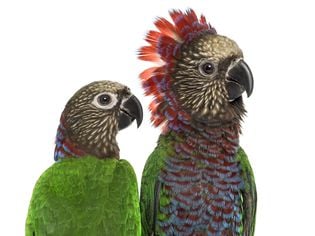
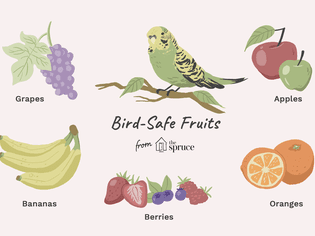
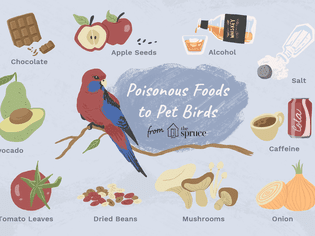
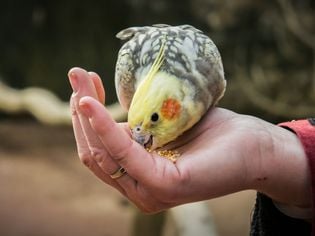
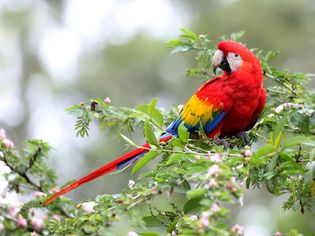
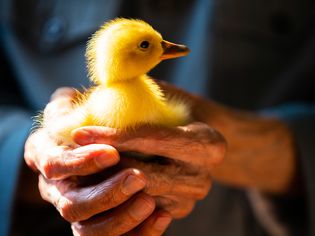
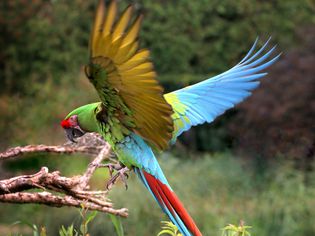
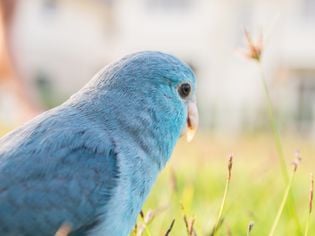
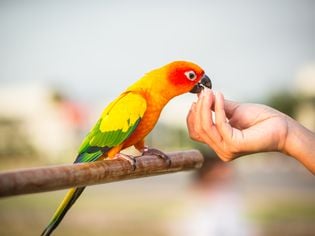
Comments on "Seeds vs. Pellets: What to Feed Your Bird" :